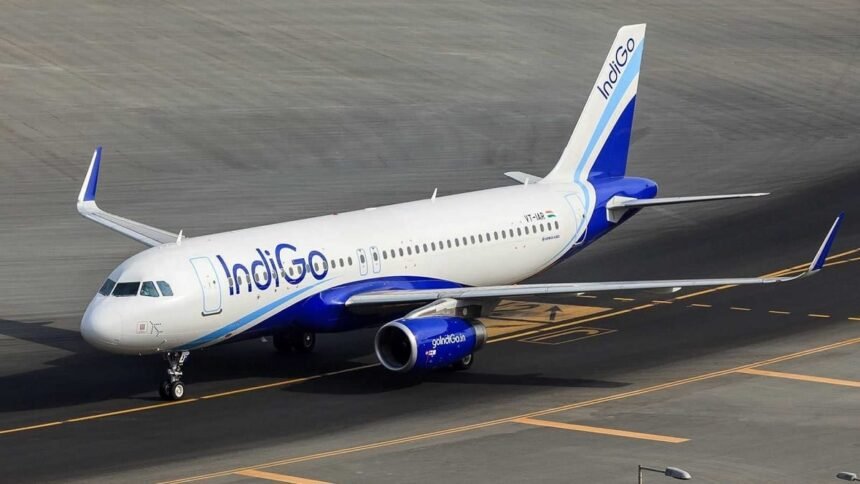IndiGo, a prominent airline in India, is once again at the center of controversy, this time due to an incident involving an “in-flight bhajan” accompanied by a drum. The episode, which took place during a domestic flight, has sparked debate and criticism, raising questions about the appropriateness of religious practices in the airline industry and the boundaries between cultural expression and passenger comfort.
The incident came to light when a video surfaced on social media, showing a group of passengers performing a bhajan (devotional song) accompanied by a drum in the aisle of an IndiGo aircraft. The video quickly went viral, drawing mixed reactions from netizens and reigniting the debate over the role of religion in public spaces, particularly in commercial settings like airlines.
While some praised the impromptu musical performance as a display of cultural diversity and communal harmony, others condemned it as a breach of airline etiquette and an imposition of religious beliefs on passengers who may not share the same faith. Critics argued that such displays could make passengers of different religious backgrounds uncomfortable and disrupt the travel experience for all onboard.
IndiGo faced backlash for its handling of the situation, with many questioning the airline’s decision to allow the bhajan performance to take place during the flight. Some passengers expressed concerns about the potential safety hazards posed by passengers moving around the cabin and blocking aisles, especially in the event of turbulence or emergencies.
In response to the controversy, IndiGo issued a statement acknowledging the incident and apologizing to passengers who may have been inconvenienced or offended by the bhajan performance. The airline clarified that the incident occurred due to the spontaneous actions of a group of passengers and emphasized its commitment to ensuring a comfortable and safe travel experience for all passengers, regardless of their religious or cultural background.
The incident has reignited debate over the appropriate boundaries between religious expression and public spaces, particularly in contexts where individuals from diverse backgrounds come together. While India is known for its rich cultural heritage and religious diversity, finding a balance between celebrating cultural traditions and respecting individual freedoms and preferences remains a challenge, especially in commercial settings like airlines.
Moreover, the incident highlights the broader issue of passenger behavior and etiquette during flights, with airlines grappling with how to address instances of disruptive or inappropriate conduct while ensuring a positive and hassle-free travel experience for all passengers. The incident serves as a reminder of the importance of clear guidelines and protocols for passenger behavior onboard aircraft, as well as the need for effective communication and conflict resolution strategies to handle such situations in real time.
Looking ahead, the IndiGo incident underscores the need for airlines to review their policies and procedures regarding passenger conduct and cultural sensitivities. By establishing clear guidelines and providing training for flight crew members on handling diverse situations, airlines can better navigate complex scenarios and uphold the comfort and safety of all passengers onboard.
The debate sparked by the “in-flight bhajan” on an IndiGo flight prompts significant inquiries into the convergence of religious observance, cultural variety, and passenger well-being within the aviation sector. As airlines strive to accommodate the diverse needs and preferences of passengers from different backgrounds, finding a balance between celebrating cultural traditions and ensuring a respectful and inclusive environment for all remains an ongoing challenge.









